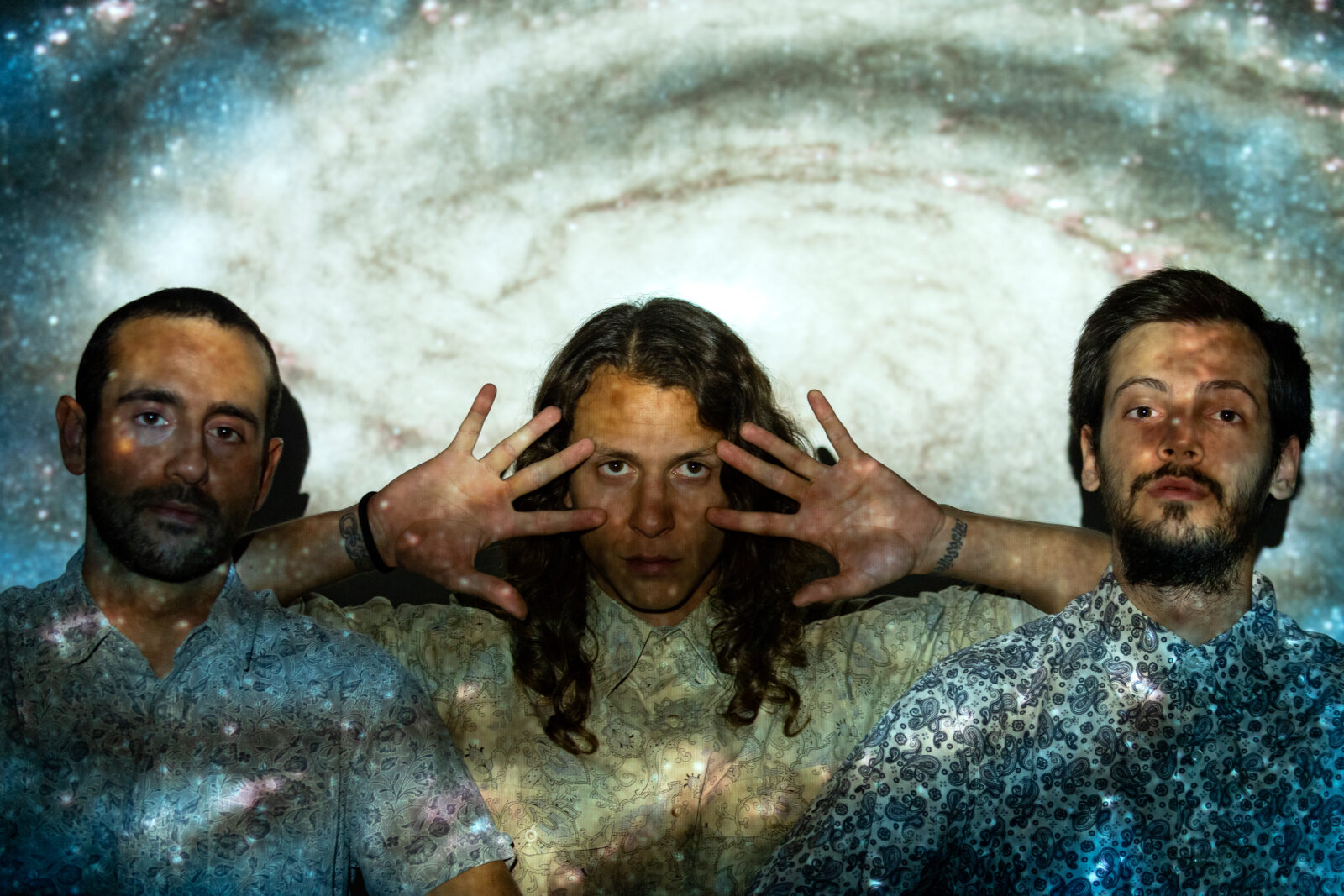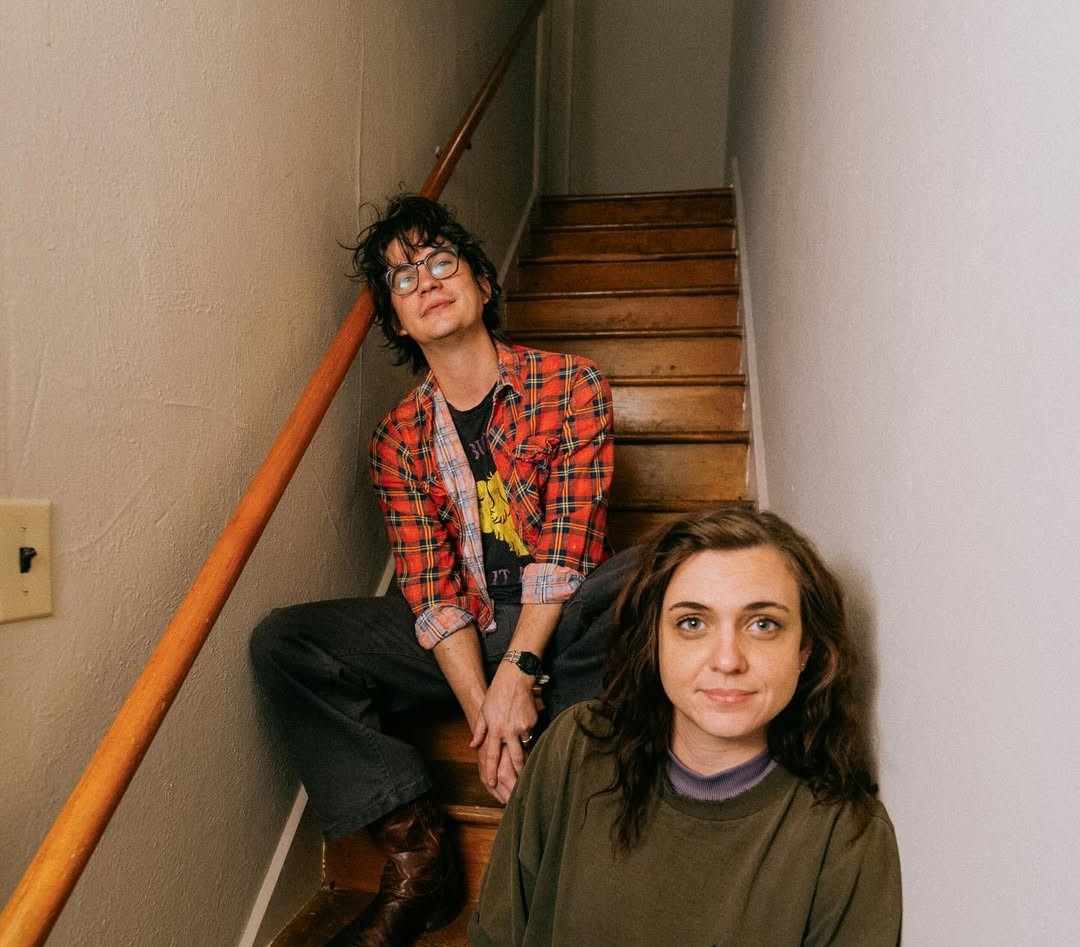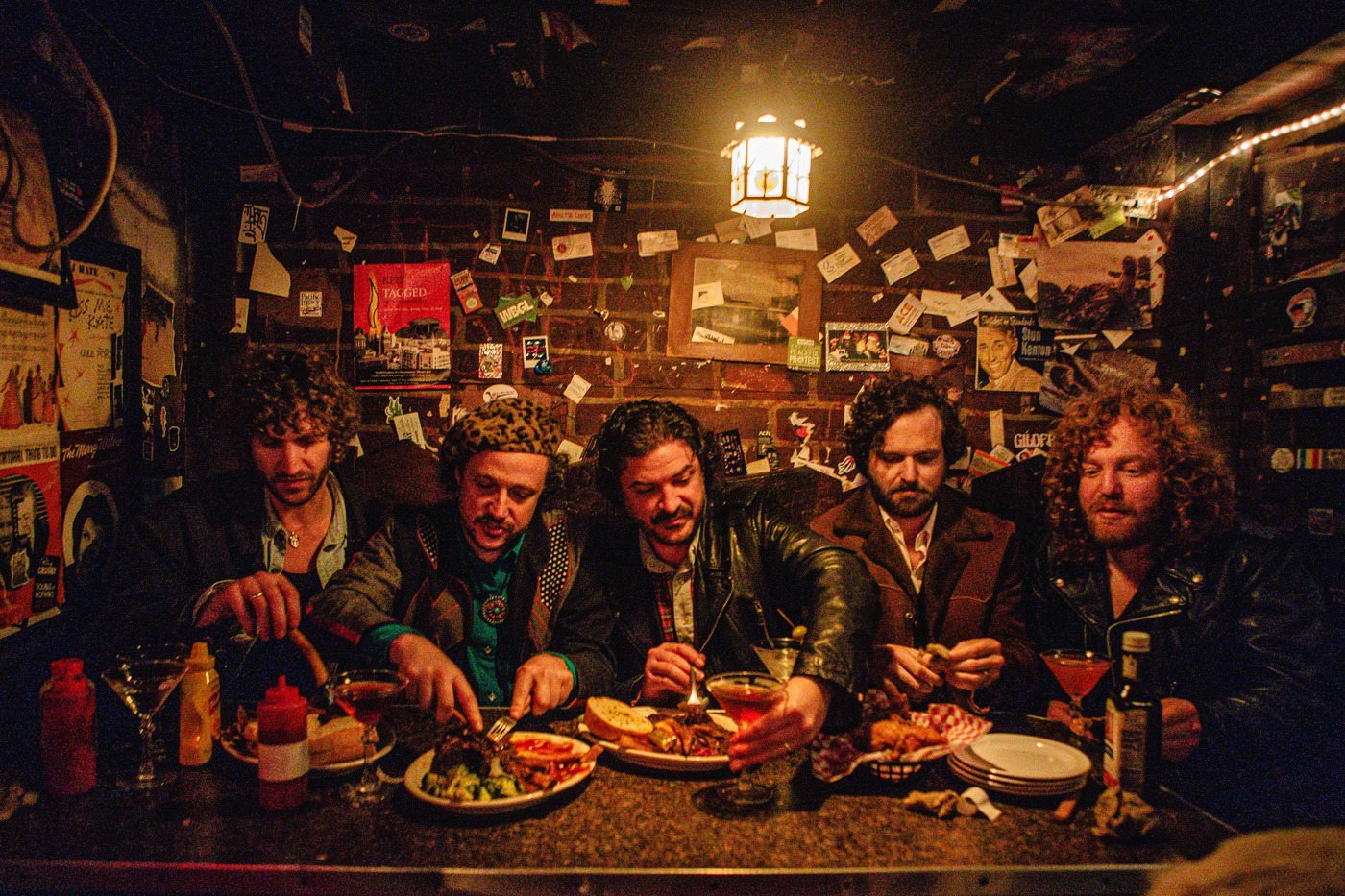Plastic Woods | Interview | “Andalusian psych rock”
Plastic Woods is a power trio formed in 2018 in the depths of Andalusia. Their music is a trip through different landscapes. From heavy riffs, to fine melodic lines, trying to show a spectrum filled with musical influences and thematic originality at the same time.
It’s a journey full of chiaroscuros and an expressiveness, typical of an actual but self-conscious progressive rock, tied to its roots.
Javier Rubio Arrabal – drums and percussion
Antonio Pérez Muriel – bass guitar, sound effects
Jesús de la Torre Sánchez – guitars, transverse flute and vocals
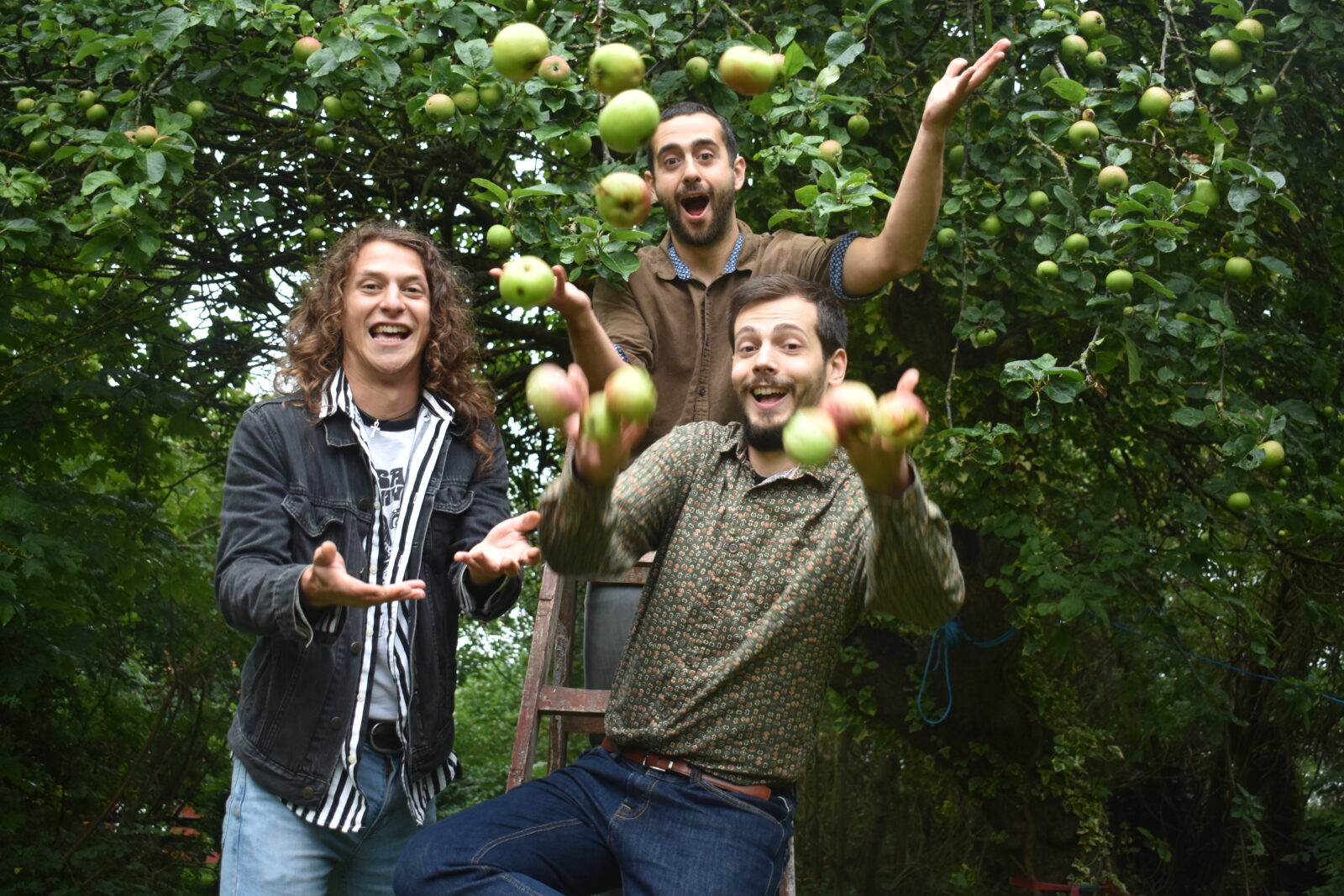
“We feel really connected with our roots”
What led to the formation of Plastic Woods?
Jesús de la Torre Sánchez: Actually that is a very good question! A little bit of a coincidence, a little bit of a subconscious decision that was hidden inside our minds from a long time ago. It’s the old classic story: we have known each other since we were teenagers (we even studied in the same school) and everyone has been involved in several different projects in our hometown (Antequera) since I can remember. Every time I saw Antonio (bass) and Javi (drums) playing with their respective bands I recognized they were really good musicians and had “something” only some have. I think some kind of feeling of possible synergies was starting to pop up in our minds as we grew up and followed each other’s projects. Muriel and Javi had already shared a band together (G-Röck), and some years later Javi joined a powerful and renowned garage band from Málaga (The Oddballs), so I was basically in touch with what they were doing at the moment for a long time. It wasn’t until I was living in Granada and working with several different projects (Blue Man & The Masked People, My Oh Guru Mai, among others) that the band started to take its first steps. I was working at Pig Studios (Granada), a rehearsal room and recording studio when I asked the owner, Daniel Ruiz (drums in Mother Gun) to start this awesome and crazy-as-fuck band together. He agreed, and said to me that he had this perfect bassist player for the project. When Antonio showed up for our first rehearsal, I was kind of shocked: I had met him a long time ago but never actually played with him! I think he was around the rehearsal room on that time, starting some kind of project that ended up being another cool as fuck band called “Ramper”. Some months after that, when ‘Icarus’ was already composed, Dani left the band and we decided to call Javi to see if he could join us in order to record our first album (the phone call was made the very same day Dani left, sorry Dani, we really needed to put that record out!). He said yes, and the true Plastic Woods story was about to begin!
This was about three years ago, right?
Four! But considering the circumstances surrounding the last two years, I kind of feel that it has been between six months and ten years. We have already made a lot of stuff with the band, but also there has been this “huge” period of time where all we could do was to sit and wait for our music to be released. Once Javi joined the band, everything started to happen very fast: first album, first tour, the composition of our second album, more gigs and experiences and then… nothing! Every band and music lover knows what these means… but we are returning stronger than ever. It has been kind of weird trying to reconnect with everything we experienced those days, but right now it seems like it has forced us to work in every possible detail until the record could be released. We didn’t waste our time during lockdown, as we have managed to get in touch with a lot of record labels and focus on doing our best with ‘Dragonfruit’s’ production. But man, even if this sounds like a topic, our music is meant to be played live!
Are you all coming from Andalusia? Does your music feel connected to the region you’re living in, and if so, in what way?
Absolutely, we feel really connected with our roots. I could speak about this and that for hours, but the thing is that Plastic Woods has a strong Andalusian character, even considering most of our songs are written in English. You can see that in our concept, melodies, art and others, but mostly I think it is about being very open minded when it comes to music. Andalusia has always been a very diverse place in terms of culture: a lot of different ancient civilizations lived or prospered here in the past, like Romans, Arabs and different ethnic groups. It’s a region that has inspired thousands of artists, poets, writers and musicians in every possible way, and I tend to think that there is something about Mediterranean culture that makes us be very eclectic, willing to explore new sounds and to take the best we can from different sonorities. Back in the seventies, Andalusia was also well known for its rock subculture. Bands like Triana, CAI, Smash, Storm, Iman, Guadalquivir or Alameda, among others, took the best they could learn about European progressive and hard rock and made something very personal about it. Some say it’s about mixing flamenco music (our best example of “local” music) with other stuff; I would say it’s more profound: Andalusian rock has always shown a kind of identity that goes beyond just mixing genres. For me it’s about the themes and the capability of expressing feelings characterized by its dichotomies. Passion, love, sadness, euphoria, for example, can be mixed in very creative ways when it comes to Andalusian culture. Also, I would say that we are not exactly Europeans, not exactly Africans and not exactly from anywhere, so bands from here are not very good at imitating what is being done in the rest of the world. We are into that! ‘Sulayr’, from our second album, it’s probably the best way to describe it in terms of music. I think ‘Dragonfruit’ has that heritage and mentality in its very own core, and we are amazed that a lot of people from around the globe have been capable of feeling those details that represent our culture.
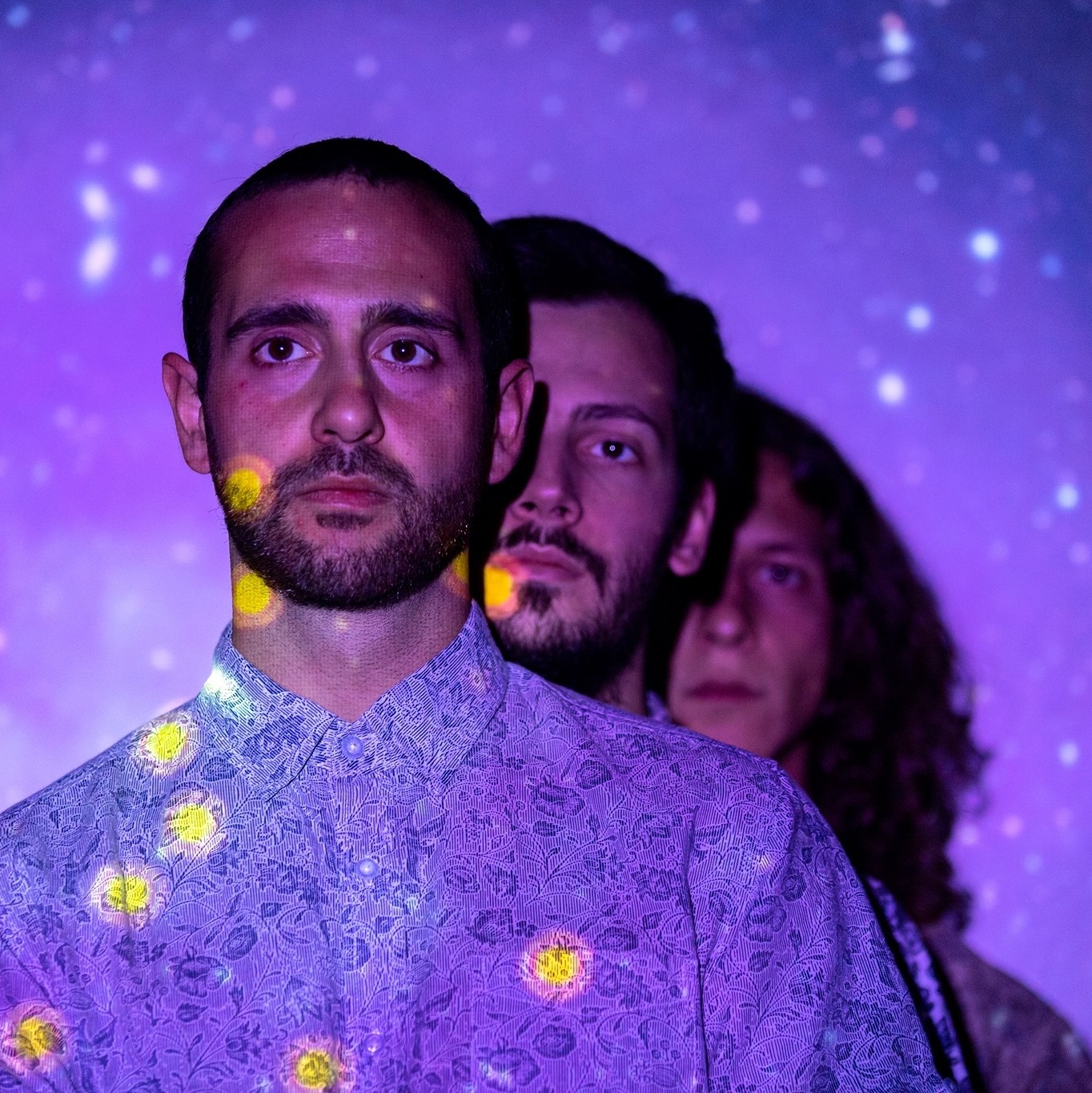
I’m guessing Plastic Woods isn’t the first band you were part of. Tell us about your musical background.
I mentioned some of that before, but there is a lot more behind it, as we have never really stopped playing with other bands before or after Plastic Woods was born. Muriel, for example, is also part of Red Eye (if you ask me, one of the most amazing and underrated doom bands of the European scene). The singer and lead guitarist is Antonio Campos, and we could say we are musical brothers. We used to earn some money together playing almost every genre you can think of (country, blues, jazz, flamenco, rock). Javi has also played with several different combos of rock, jazz, latin and a lot of those groovy fusion stuff that every good drummer loves. On the other hand, and even if some of those bands never really popped up, I have played in bands from thrash metal to funk non-stop. Right now I’m also working on a project with Edu Soto (Welcome Lemi), who is some kind of a celebrity here in Spain as an actor/singer. We are cooking an album produced by Javier Limon, he is like the Rick Rubin of modern Flamenco music here. Probably that explains what kind of cocktail you are about to taste with Plastic Woods! It can be weird at first, but it is strong, variate and tasty as fuck. In other words, we can’t contain ourselves when it comes to expanding our musical references.
You have a brand new album out, but before we get to that, let’s discuss your debut album, ‘Icarus’.
Our first album is a conceptual work and every song is a part of a large story with a lot of references and little details here and there. We wanted to make something that could fit in every prog and psych lover collection as a “classic” but without losing our freshness and identity in the process. I studied philosophy and have always loved Greek mythology, so when Muriel proposed to me to make a conceptual work around Icarus’ ancient tale, a lot of ideas started to form in my mind. From there it was a funny and a very inspirational task! I remember that every time we were composing the songs we had a lot of images and references in our heads to express those “stages” of the myth (the sea, the wings, ‘Icarus’ mother, the minotaur, the sun making him fall apart…) As the songs were starting to feel solid, we decided to make our concept more adequate to the present times and thought that our protagonist had to represent a part of the terrible experiences refugees live every day in present times. Things went a lot better that way, as we felt we were not only playing music but telling a story full of chiaroscuros, references, and exploring intense emotions. We wanted to build up a “cathartic” experience, so people could relate with the story and feel the journey through the songs. The reading of Hero’s Journey, by Joseph Campbell, was also a big influence to work out that idea. In the end, ‘Icarus’ is not becoming exactly a hero, but a victim of the system, and I think that idea turned ‘Icarus’ from a typical conceptual work into a more profound view on these individual psyche and his motivations and topics, like death, loss, madness and others. In the end, myths are beyond us, in the sense that they can tell us and teach us things we didn’t get at first sight! They are and always have been one of our strongest communicative tools.
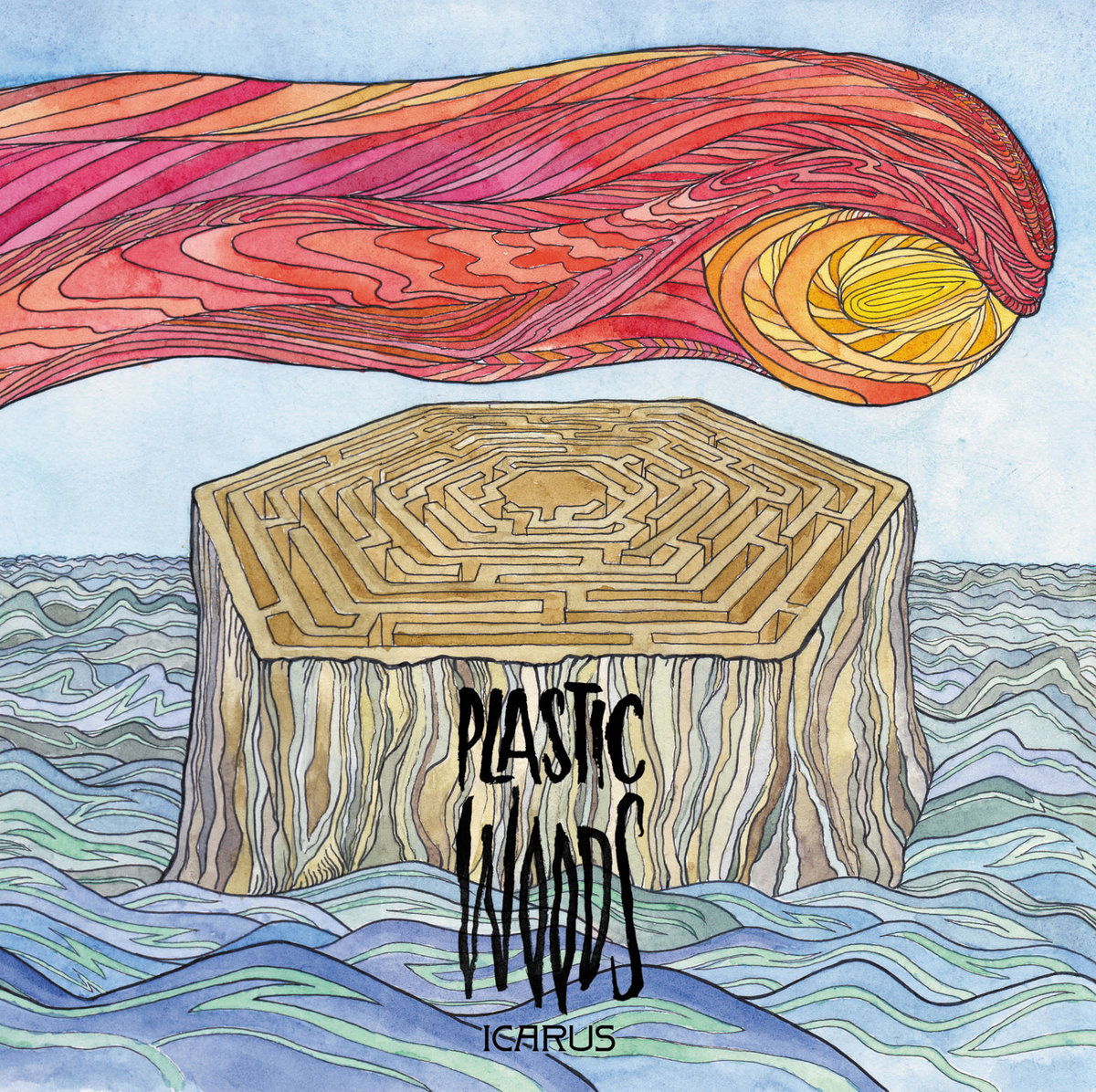
On the other hand, and if we discuss the music, for me ‘Icarus’ could work as the common “stoner doom psych” stuff everybody on this scene loves, including us, but I think we managed to show that we were taking that into a different approach, making something special with our common influences. I think that what we call “progressive” or “art rock” is about taking the best from the genres people are familiar with and forcing them to sound different as we experiment with their limits. Also, there is always space for bringing weird ideas to the equation! As I said earlier “krautrock”, doom metal, Canterbury style prog or even a jazz clarinet can work together as long as you are expressing something with them.
For us, ‘Icarus’ was our first intent to put something original on the radar. Everyone knows the first steps of an underground band can be kind of tricky: you want to show your personality but without making something that people can’t relate to. These days, “tags” and aesthetics are very important for the listener to search for new bands they know they can enjoy, and I tend to think that the way we consume media makes us a bit lazy when it comes to finding audacious and exciting music. In my opinion, that’s also why a lot of bands tend to copy the kind of sound, looks and designs they are familiar with. And that is just fine, and we also love it! But sometimes it can get very difficult to find something that gets “out of the box”. That’s why we decided to make something that our “objective” audience could relate to but keeping in mind that we wanted to show another kind of perspective on those topics we also love.
“Andalusian, LSD-fueled William Blake expressing the kind of nightmarish visions that Greek ancient sorceresses had back in the day”
I really enjoy the cover artwork. Who’s behind it?
Thanks! The artwork was made by Gonzalo Santana (who is also the drummer from Pylar, an awesome band based on Sevilla). He has worked as an illustrator and artist for a lot of amazing formations, such as Orthodox, Pylar or Baläte. We loved his originality and his capacity of mixing sinister and surrealistic stuff with vivid psychedelic watercolours and Jungian-kind of conceptual ideas. For me, that cover is like having an Andalusian, LSD-fueled William Blake expressing the kind of nightmarish visions that Greek ancient sorceresses had back in the day. If that sounds attractive, just check his Instagram page!
Okay, now let’s talk about your latest album, ‘Dragonfruit’. It was released in collaboration with Spinda Records, The Braves Records, Discos Macarras, Violence in the Veins, Quebranta Records and Gato Encerrado Records. I always admired the collaboration between the labels. I think that way musicians can get more exposure.
Is great that you appreciate the work that labels put on this kind of release. I mean, these kinds of records wouldn’t have half of the recognition they deserve if it wasn’t for the love, hard work and support labels and specialized media put on the bands. ‘Dragonfruit’ is no exception, as we have managed to give our music a huge step beyond thanks to them… For us it is just great to share labels with some of our most beloved bands on the scene, like Acid Mess, Habitarlamar, Santo Rostro, Catorce, Híbrido or Atavismo, just to name a few. But as you said the exposure you get is what makes bands capable of continuing making music and releasing records, as it is getting really hard to get them properly done. So… thanks to everyone in that list, we love you!
Continuing with ‘Dragonfruit’… It has been great to see that the release of our second album has attracted a lot of new listeners. It has been crazy to see that a lot of people from several different countries have been touched by the songs, and we feel this is the start of something beautiful. As a small, young band, it makes us really proud, and also passionate to continue working hard on our sound and on new ideas now that we feel our audience is growing. The album was intended to be released in 2020, so even if things have been hard for us in this almost two years gap, the feedback gives you hope for the future.
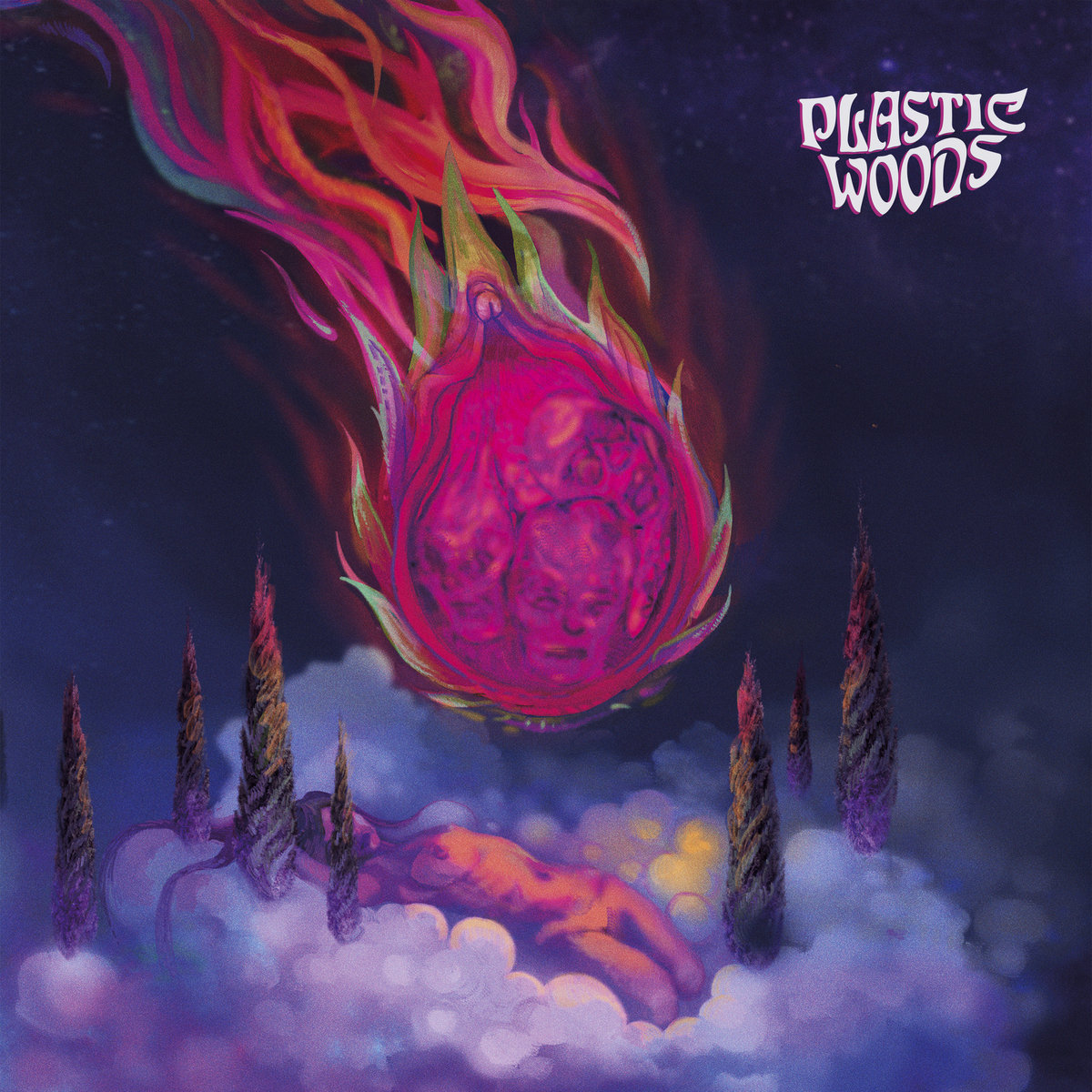
This has been an album in which we have grown a lot in terms of personality, musicality, production and, what’s more important: knowledge and confidence. We spent a lot of time thinking of every possible detail to make it sound and look amazing. In general terms is also an intention statement: we wanted to position Plastic Woods as a solid and special reference on the prog/psych scene, and I think we have managed to fulfill our objective in a small, humble way.
Is there a certain concept behind ‘Dragonfruit’?
This is an eclectic piece of work, and it has a little bit of everything for everyone interested in those “off the radar” risky albums. It contains six songs, and every one of them tells its own story and explores a different mix of genres. We didn’t want to make something similar to what you can hear on ‘Icarus’, because we felt like that could be a limit for our creativity. Instead of defining a concrete way of sounding, we decided It was about time to show our personality as a band by precisely doing whatever we wanted and feeling with all those ideas that are present on our first album and a lot of new ones. The result is ‘Dragonfruit’.
I like to see it as a solar system: you have all these planets around, and each of them has different sizes, colors, compositions, geography… Once you have seen (and explore) one of them, the adventure continues on to the next one. It requires you to be adventurous and open minded to enjoy the trip, but at the end of every great and strange journey there is always a
1- What the fuck has just happened?
2- I really need to understand this
3- Let’s do it again!
So yes, it is the kind of album that needs patience and probably more than just one listening. But I think we have created this puzzle where every piece has something to offer on its own. We live in the time of singles and short releases and not everyone is ready to listen to the entirety of an LP in the order that was thought to be listened. ‘Icarus’ was intended as a full experience, like those prog rock timeless albums I grew up listening to (‘S.F. Sorrow’ by Pretty Things, or ‘Days of Future Passed’ by The Moody Blues). ‘Dragonfruit’ is more about bringing that kind of spirit to an album that gets in touch with a lot of different genres but wants you to get inside of every song as a concept in itself. Some kind of a trial!
The funny thing about ‘Dragonfruit’ is that it was originally intended as a very positive, energizing album. Our first LP was a tragedy and had a lot of gravitas, so we thought it was about time to express and explore different emotions and bring something really funky, naive and funny to the table. Most of the songs were made after a very good time of our lives, where we were having a lot of fun and trying to push this “rock and roll” lifestyle (but in a proggy way) and taking the best from every experience we were having as a band and, specially, as friends. But as we all know things got fucked up and another kind of images and concepts took their place. As a result, the album is between two worlds: life, joy, happiness, dance, creation and the dark times, where death, fear, isolation and anger reigns. I think cover art shows this very well: life is beautiful, fragile and temporary, and death is necessary and it’s there to show us off to live our lives to the fullest. It’s all about balance man!
Would you share your insight on the albums’ tracks?
Of course! I will try to do it with just a few phrases. Let’s get a little bit creative:
1. ‘Dragonfruit’: music is born from chaos and madness. And there is always time for your mind to wake up and see things differently. It’s the only way to get some truth in this strange world, as every ying needs its yang and we are always on our way to get some meaning out of the darkness. Taste the ‘Dragonfruit’ and see what happens!
2. ‘The Calling’: a song about the power of sexual forces expressed in a journey that comes from fear and how it is released and overcomed by the eternal dance of our spirits! Also has flutes, sax and trumpets.
3. ‘Dreamland’: a trippy and very 70’s song that explores the joy of dreaming. The structure is made following the weird way dreams work: every part is different from the other and the structure is pushing you to wake up. The dream wants to tell you something and you want to know it, but be careful with what you find out, It could change you forever!
4. ‘Storm’: a song about leaving dreams behind and following that hard part that is needed to see things clearly and being mature. The best folky songs are always about nature showing you the things you need to know to be a happier and wiser person! Oh, and the violin is gorgeous.
5. ‘Close to the Void’: take this prog/psych rock band, mix it with Mötorhead and scream about the end of times and how reality is absolutely insane, violent and scary and there you have it: Helter Skelter meets 2020/2021.
6. ‘Sulayr’: an Andalusian rock experiment about leaving everything you know behind. Loss, melancholy and the path to exile. The lyrics are inspired by the ancient city of Granada and Sierra Nevada mountains, and sings to those that had to run away for their lives from very extreme situations. For more details, google “Spanish Maquis” and their struggle against Franco’s fascist regime at the end of Spanish Civil War.
Let’s end this interview with some of your favourite albums. Have you found something new lately you would like to recommend to our readers?
Even if 2021 hasn’t been the strongest and perfect year for music, there have been a lot of bands that put out some incredible records. Just to mention a few, we would say our top 3 gold mines would be
1. Turnstile – ‘Glow On’
2. Maragda – ‘Maragda’
3. Bala – ‘Agitar’
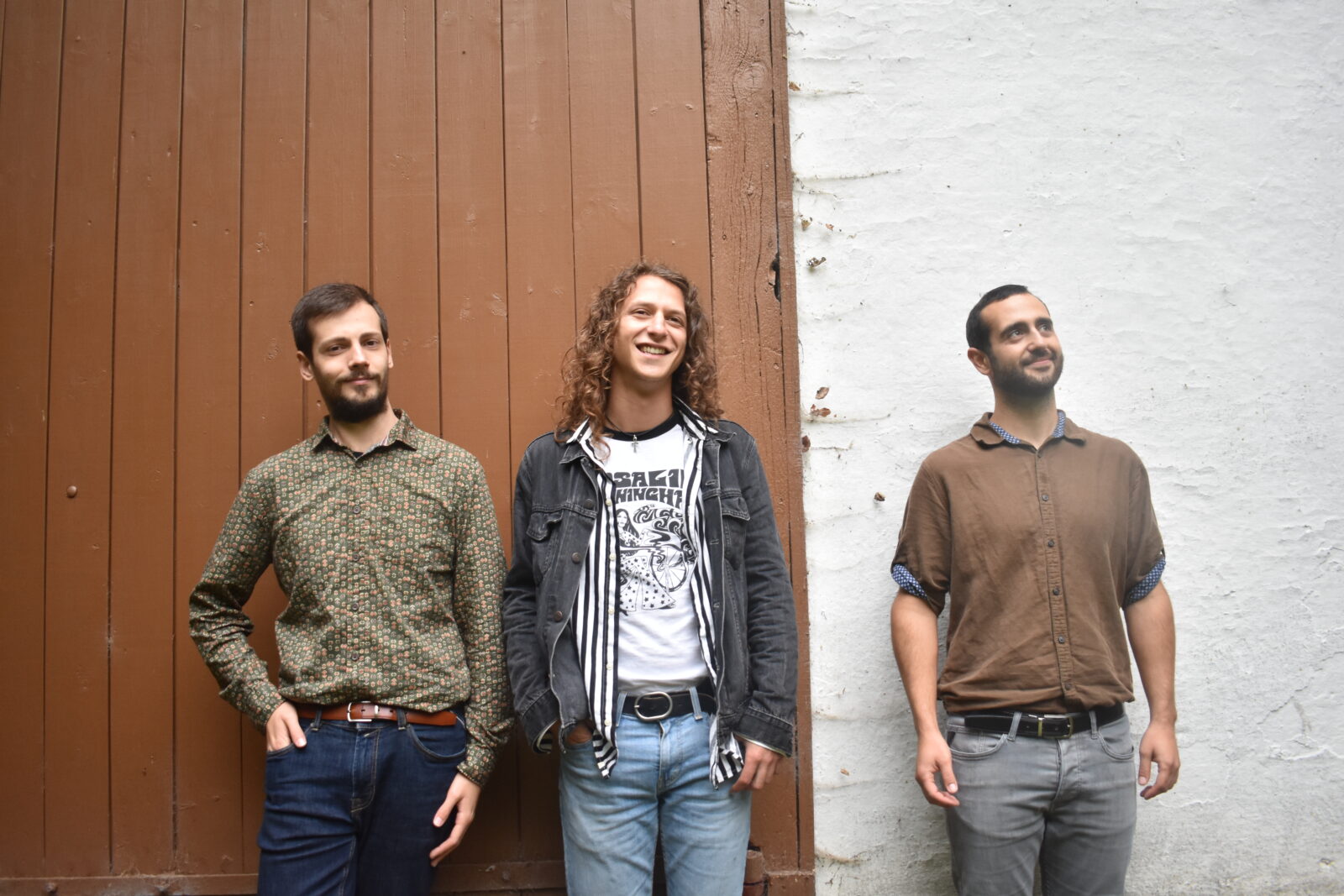
Thank you. Last word is yours.
Thank you so much Klemen for your loving care on music and being so close. And to everyone reading this and supporting us, we love you! And promise we will do our best to release more and more weird and special music. Rock and rock will never die!
Klemen Breznikar
Plastic Woods Facebook / Instagram / Bandcamp / YouTube

